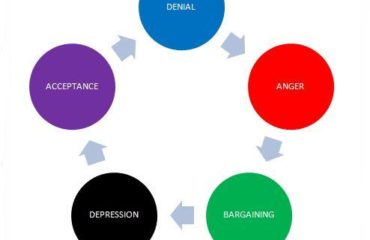Guest blog by Jennifer McGregor co-creator of Public Health Library
Drugs and alcohol impact every area of your life. Your physical and mental health are often the hardest hit. It doesn’t matter if you’re 13 or 30, it takes time to bounce back from months or even years of drug abuse.
How drugs hurt
Using drugs puts your body in a bad position. Smoking cigarettes and marijuana along with using inhalants can damage your lungs and put your health at a greater risk of everything from heart disease to liver failure. Methamphetamines, the use of which has reached epidemic proportions in some parts of the world, are fast-acting when it comes to tearing your health apart. Using meth can cause cardiac damage, convulsions and extreme gum disease. Cocaine is another example of a drug that can hurt you. As a stimulant, cocaine use has been closely linked to heart attacks and strokes.
If your drug of choice is alcohol, you put yourself in harm’s way with each drink. The National Institute on Alcohol Abuse and Alcoholism reports that just one binge can take a toll; heavy drinking is linked to pancreatitis, liver cirrhosis, and cardiomyopathy — all big words that mean drinking can cost you your life.
Thankfully, hope is not lost, and you have the power to change your path. The first step is to get help for your addiction. Then it’s up to you to keep yourself healthy and strong to avoid relapse.
Healing from the inside out
Healing your body is one of the first steps toward a complete recovery. The best way to do this is by prioritizing nutrition and exercise. A word of caution: If you haven’t worked out in a while or if you’ve never put physical fitness at the top of your to-do list, you’ll have to ease your way into the process. Overworking your muscles is a good way to get hurt, and that can make you crave drugs or alcohol for relief, which is not what you need.
What you need is an exercise routine you can incorporate into your daily school or work schedule. Spend at least 30 minutes every day doing something that gets your heart rate up and makes you sweat. This could be jogging, lifting weights, swimming, dancing, or playing basketball. Working out releases certain chemicals that do the same things your brain that drugs do but in a healthy way. Endorphins are your body’s way of dealing with pain, while dopamine can make you feel happy.
Eating well is just as important as exercising. If you think about your body, it’s a lot like a planet. There is a whole world inside of you called a microbiome. This microbiome is in your gut and contains a community of tiny microbes that go to work each morning keeping you healthy and making sure you can digest and process the nutrition of the food you eat. The bacteria in your belly directly impact everything from your mood to your energy levels. In order to keep it healthy, you’ll need to cut out processed foods and sugars and fill it with delicious foods like bananas, garlic, and yogurt. If you’re worried about money, you can still eat healthy on a budget.
While improving your diet and incorporating an exercise regimen into your daily routine, you should also look over your insurance policy to see if any changes occurred over the past year. This is especially true if you’re a senior, as Medicare alters coverage on an annual basis. Also, keep in mind that Original Medicare won’t cover things like dental and vision care, both of which are very important for people in recovery. If necessary, look into getting a Medicare Advantage plan, such as those provided by Aetna, which can help provide you with the coverage you need to ensure your physical health is properly addressed.
Managing your mental health
Paying attention to your diet and exercising is a great start. But these things can only take you so far in your recovery. If you want to truly heal from your addiction, you have to focus on your mental health, too. This means focusing on your spirituality, finding ways to eliminate stress, and socializing with people who have your best interests at heart.
Whether or not you are religious, focusing on the spiritual element of recovery is imperative to caring for your emotional health and well-being. By looking outside of yourself, you may be able to identify and address issues that are preventing you from healing completely. Many 12-step programs, for example, encourage you to turn your life over to a higher power. Whoever and however you understand God to be, connecting with your own spirituality can help you learn to make amends with yourself and others.
It doesn’t take a long vacation to banish stress. Stress management expert and author Paula Davis-Laack clearly illustrates numerous stress-relief techniques that take five minutes or less in this post. You can find stress-relief opportunities in everything you do. For example, if you’re about to take a really hard test or start a new job, take a few moments in the morning to reflect on what these things mean to you. Will acing the quiz prove to your parents that you’re trying to change for the better? Is the new job something you need to support a growing family? When you remember what you’re working for, it’s much easier to develop coping mechanisms that get you over the hump.
Some people try to bring spa-like elements into their own home to help create a relaxing atmosphere. For example, a typical “spa day” at home might include some mellow music, dim lighting, and some all-natural skincare products. The specifics will vary from person to person, of course, but the point is to relax and find a way to introduce some comfort into your day.
Another exceptional way to reduce stress in the digital age is to go cold turkey on social media. If you find yourself eagerly waiting for likes or retweets, you’re placing too much value on what others think. Not only does social media suck up your energy, it steals your focus and can become an addiction in itself.
Getting enough sleep is also important, and you’ll be more energetic and able to focus on your priorities if you’re well rested. Try to go to bed and wake up early. There’s plenty of evidence to suggest that being an early riser will make you less prone to depression.
Recovering from an addiction is hard work. But if you break your recovery down into daily activities, such as eating well, exercising, and focusing on your mental health, you give yourself a better chance at leaving your vices behind forever. You will always be at risk of a relapse, and willpower alone may not be enough to keep your head afloat. Find a good counselor and maintain an open line of communication with your parents, siblings, teachers and peers, and you’ll find you have a network of support that will encourage you to keep yourself healthy in every way.
Image via Pexels




